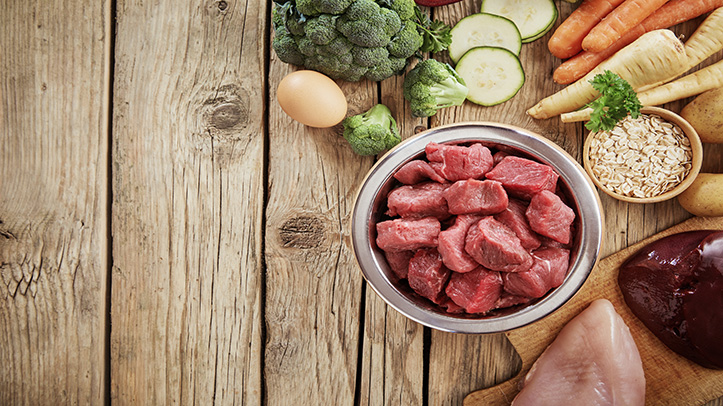New research has revealed an association between the feeding of raw meat to pet dogs and the presence of bacteria resistant to critically important antibiotics.
Two studies led by a team at the University of Bristol have found dogs who are fed on a diet of raw meat were more likely to excrete antibiotic-resistant bacteria Escherichia coli (E. coli) in their faeces.
Previous research has shown that there is the potential for bacteria to be shared between dogs and their human owners through everyday interaction, leading the researchers to suggest that raw feeding is not the safest dietary choice, and that, if chosen, owners should take extra precautions when handling raw meat and be especially careful to clean up after their dog.
The study, published in the Journal of Antimicrobial Chemotherapy, investigated adult dogs and found links between dogs eating raw meat and excreting resistan E. coli.
The research supports a recent study by the team, published in the journal One Health, which looked at 16-week-old puppies. Both studies, which used data from different dogs, demonstrate that dogs may excrete resistant bacteria regardless of their age or the length of time they are fed a raw meat diet.
Matthew Avison, Professor of Molecular Bacteriology from the School of Cellular and Molecular Medicine, who led the microbiology aspects of these studies, said: “Antibiotic-resistant bacteria are everywhere, but some antibiotics are considered critically important for use in humans.
“We have shown that dogs fed raw meat are more likely to carry bacteria resistant to these important medicines. This doesn’t mean that the animal, or the owner, will become sick.
“E. coli is a widespread bacterium that is found in the intestines of all humans and animals, however it is a common cause of many diseases including urinary tract infection and can cause serious illness including sepsis if it spreads to other parts of the body.
“We should do everything we can to reduce the circulation of critically important antibiotic-resistant E. coli and other bacteria. Our research adds to the increasing evidence that not feeding raw meat to dogs may help in that objective.”


